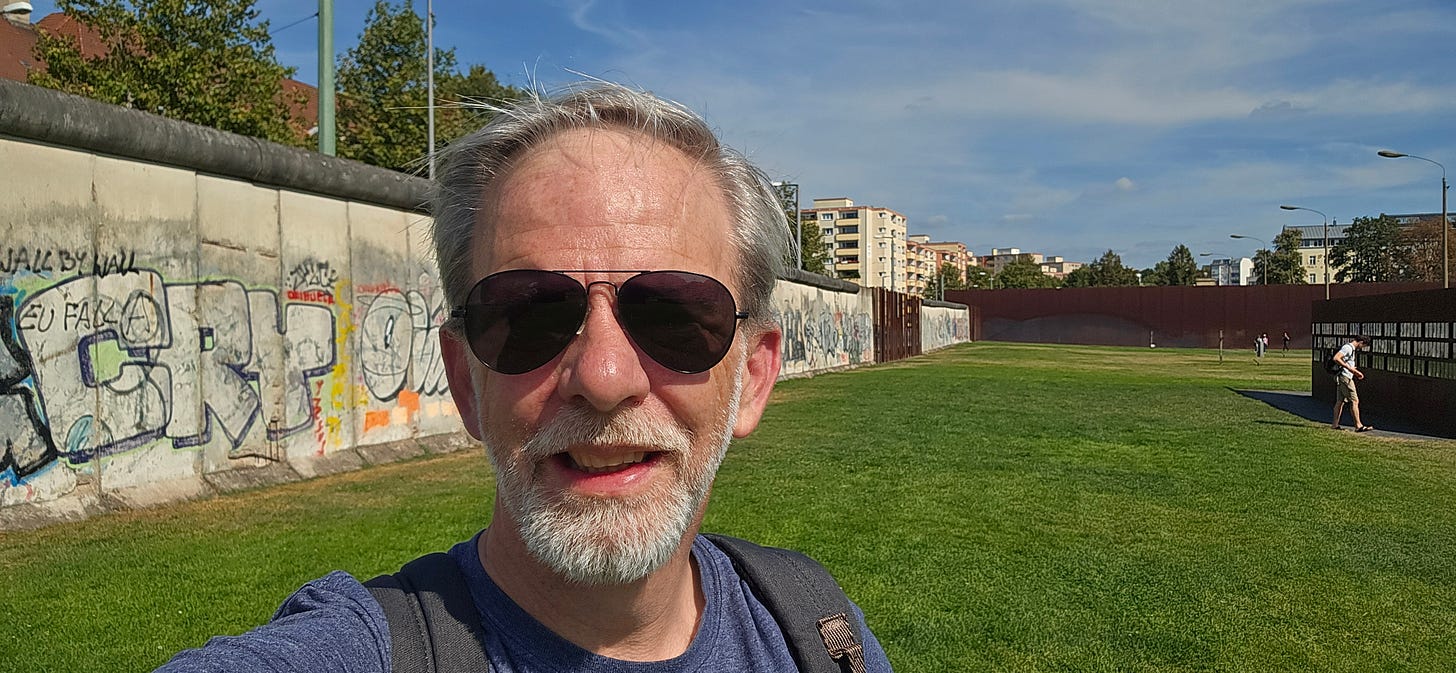What is More Signal, Less Noise
This Substack is my outlet for sharing thoughts, perspectives, and explorations on topics and issues that I find interesting. Its inspiration and mission harken back to why I became a writer—dare I say, a thinker—in the first place. I crave and feed off intellectual stimulation, continuous learning, and adaptable, evolving thinking.
More Signal, Less Noise is me returning to why I became a writer in the first place.
The year was 1983. While walking on the beach, talking about my favorite and most influential band, Rush, I met a guy who told me that the Canadian trio’s seminal album, 2112, was based on a book: Anthem, by a Russian-American individualist, Ayn Rand. A few days later, I was at the local mall, spying a bookstore—a place I would have never been caught dead visiting. Books were for nerds; I was an aspiring 14-year-old underachiever destined for a blue-collar job. At the time, I was working on lobster boats, thinking all I needed was calm seas and clear skies and my life would be fine. Yet, that guy’s advocacy for this book resonated with me.
I found the slim book on the shelf with a $5 price tag. That was a lot of money for a kid back then, but I shelled it out anyway. I cracked open the paperback to the first page and read:
"It is a sin to write this. It is a sin to think words no others think and to put them down upon a paper no others are to see."
Whoa! I couldn’t put the book down. It was the first book I ever really read. At the time, I was what they called “functionally illiterate.” I could read, but not well. I had zero comprehension and little patience for sitting still. Reading was painful. (Later in life, I would be diagnosed as dyslexic and ADHD—two conditions that are absolutely wonderful for a writer.)
People can criticize Rand for being a selfish, extreme libertarian. She wasn’t a compassionate woman, but she was a free thinker. The story of Anthem, about a nonconformist who breaks with the oppressive dogma of a highly controlled and regressive society, struck a chord with me. The idea that you could stand out by doing something others weren’t, think uniquely while others fell in line, and challenge the status quo was appealing. And Rand’s style—very much aligned with the lyrics and storytelling of Rush’s lyricist, Neil Peart—resonated with me.
From Anthem, I tore into other books with similar themes: 1984, Brave New World, Animal Farm, By the Waters of Babylon. Eventually, I found my way to more heady works by societal and philosophical thinkers like John Stuart Mill, Thomas Hobbes, and Jean-Jacques Rousseau. They were thought-provoking and inspiring. Who was the nerd now?
After finishing high school and a stint in the Army, I enrolled at Suffolk University in Boston. I needed a job. My girlfriend at the time told me to seek help from the school’s career center. I had exited the military with few transferable skills and little experience in anything but manual labor. The career counselor asked, “Do you have any hobbies?” I told her that I liked to write and dabbled in storytelling. She thumbed through a pile of index cards and pulled out an editorial assistant job at The Boston Globe. In that newsroom, I cut my teeth on being a journalist.
Throughout my newspaper and magazine career, and even now in my consulting practice, I’ve developed and maintained a reputation for fairness and balance in the things I write. While challenging conventional wisdom is a cornerstone of my philosophy, I always try to walk through issues, understand different perspectives, and present a 360-degree view.
More Signal, Less Noise is about getting to the heart of issues, providing deeper thinking and inspection on the topics of the day, and inspiring others to step out of their comfort zones and information bubbles to consider alternative views. As Equality 7-2521, the protagonist in Anthem, discovered, stepping into the light isn’t easy and has consequences. However, progress stagnates in the darkness.
I know it may sound cliche, but I like to think that I live my life the way Rush depicted Tom Sawyer.
“Though his mind is not for rent
Don't put him down as arrogant
His reserve, a quiet defense
Riding out the day's events…”
Why More Signal, Less Noise? Because we need to cut through the static that isolates and insulates us from ideas and understanding. We need to reject the first, easiest explanation and dig for deeper meaning and root causes. Through More Signal, Less Noise, I want to share ideas, engage in meaningful conversation, and—perhaps—learn and evolve.
So let’s get started. As Peter Gabriel wrote: "Turn up the signal, wipe out the noise."
Stay up-to-date
Never miss an update—every new post is sent directly to your email inbox. For a spam-free, ad-free reading experience, plus audio and community features, get the Substack app.
Join the crew
Be part of a community of people who share your interests. Participate in the comments section, or support this work with a subscription.
To learn more about the tech platform that powers this publication, visit Substack.com.



